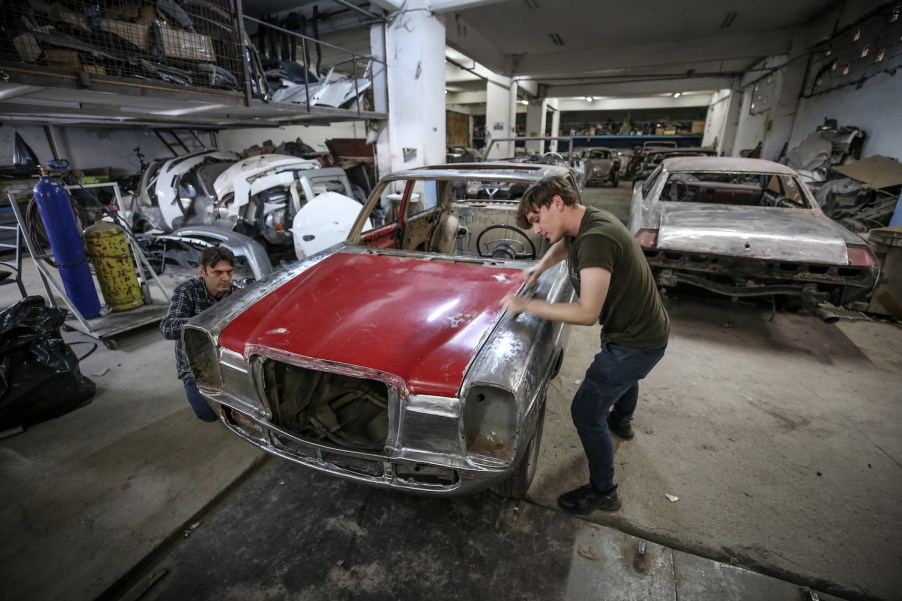
Will Your Kids Be Allowed To Restore Internal Combustion Cars?
Parents have been passing classic car and truck restoration skills down to their children for generations. And for good reason: restoring a classic car can be a bonding experience that teaches both vision and tenacity. But with combustion bans proposed in multiple countries, many are worried about the future of this hobby.
Will old combustion engines be banned?
Multiple countries, including the members of the E.U., have proposed a ban on building new internal combustion passenger cars. But no countries have proposed banning classic internal combustion cars and trucks.

The folks at Hagerty insurance are invested in the classic car business. Its not surprising that Hagerty Insider asked an unnamed Environmental Protection Agency (EPA) official about the future of car collecting.
The official made it clear that the EPA wants to limit pollution by creating guidelines for new cars. It is not concerned with the comparitively small amount of emissions from classic cars.
“The public policy focus is on the future fleet.”
Unnamed EPA Official
Will internal combustion cars be allowed on roads?
While the federal regulators are leaving classic cars be, states, cities, and even insurance companies may make life complicated for collectors. Some municipalities are already designating “zero-emissions zones” in business districts.

A number of cities, both in the United States and abroad, have proposed zero-emissions zones. Currently, these laws are mostly aimed at idling delivery trucks in business zones. The U.K.’s rules actually make an exception for classic cars. But zero-emissions zones could become much more strict someday.
States’ smog rules and insurance companies’ limitations may create more hurdles for classic car owners. California subjects all pre-1975 cars to its infamous smog emissions checks. Nevada’s smog checks apply to all 20+ year old cars without classic car license plates. The only problem is that classic car plates require antique car insurance which comes with a 5,000 mile annual limit.
What’s the future of gas-powered classic cars?
In the decades to come, collecting and restoring vintage vehicles will become an even more communal hobby. Classic car and truck clubs will play a key role in ensuring a supply of parts, a coop to buy fuel, and a way to stand up to local regulators.

The Pacific Locomotive Association is a club of steam-powered train enthusiasts. The club has restored a series of steam engines and a fleet of period-correct railroad cars. What’s more, this club rebuilt a section of the first transcontinental railroad: California’s Niles Canyon Railway.
Every weekend, passengers flock to a vintage train station in Fremont, California to board one of the Niles Canyon Railway’s trains. A volunteer from the Pacific Locomotive Association, trained as an engineer, guides the locomotive through the California countryside for an afternoon.
The steam travel enthusiasts of the Pacific Locomotive Association have found a way, through passion and ingenuity, to preserve steam travel into the 21st century. There is no reason that internal combustion cannot remain a popular hobby for generations to come.



